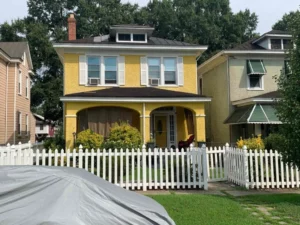Where Property Meets Perspective
RIMAWI Real Estate & Art Gallery
Welcome to a unique fusion of lifestyle and investment. Whether you are seeking the best buyers agency to secure your next home or looking for a masterpiece to hang on its walls, RIMAWI delivers an unmatched aesthetic and strategic experience.

Interior Design: Smart, Simple, and Sophisticated

RIMAWI Real Estate & Art Gallery
How Our Buyers Advocates Help
When you work with a Brisbane buyers advocate or a Perth buyers agent from our team, we look beyond the surface. We identify properties where the interior design potential is high but the “complexity” is low, ensuring your investment is both a financial and aesthetic success.
You can use a few enticing words and flaunt your capabilities that will attract future clients and encourage them to hire you right away.
Our Recent
The Art of Acquisition
The Best Buyers Agency for Discerning Investors & Homeowners Finding the perfect property is an art form. As a premier buyers advocate, RIMAWI Real Estate & Art Gallery bridges the gap between sophisticated living and savvy investing. From the coastal charm of a Newcastle buyers agent search to the high-growth markets handled by our Brisbane buyers agency, we ensure your journey is seamless, curated, and profitable.

Curating Excellence
RIMAWI isn’t just a firm; it’s a lifestyle collective. We recognized that the “best buyers agents” aren’t just negotiators—they are visionaries. Our team consists of industry-leading buyers agents and art curators who believe that where you live should be as inspiring as what you hang on your walls. We operate as a top 10 buyers agent firm, blending data-driven property acquisitions with an appreciation for architectural beauty.
The RIMAWI Advantage
Why Choose Us
Elite Local Expertise
Whether you need a Brisbane buyers agent to navigate the inner suburbs or a Perth buyers agent to tap into Western Australia’s growth, our hyper-local knowledge ensures you never overpay.
A "Top 10" Standard
We operate with the diligence and reputation of the top 10 buyers agents in Australia. Our buyers advocacy is built on data, transparency, and a track record of success.
The Art of the Deal
We don’t just find houses; we find “gallery-worthy” homes. As a buyers agency Brisbane and Newcastle specialist, we look for properties with unique character and high investment potential.
Buying Property Newcastle
We find regional gems where the transition between indoor and outdoor living is seamless.
Perth Buyers Agency
We target homes with natural light and open volumes that make even modest footprints feel grand.
Brisbane Buyers Advocacy
We navigate the market to find homes where traditional charm meets modern, smart utility.


